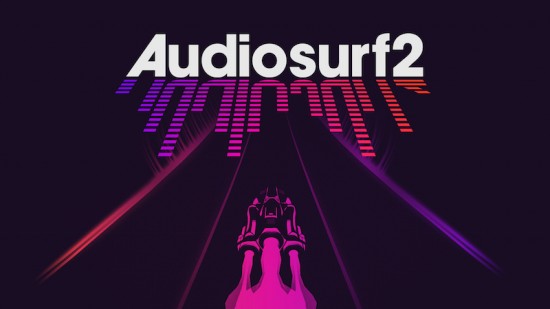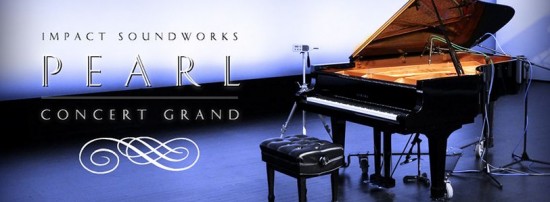Software
-
Gear, Music Production, Reviews, Software
Bravura: Scoring Brass (Review)
There have been some great advancements in sample libraries when it comes to brass instruments. As someone who grew up on game soundtracks in the 90’s, I became accustomed to hearing some really terrible MIDI brass in orchestral arrangements in my favorite games. While the other instrument families were by no means brilliant in their attempts at accuracy in those days, I’ve always felt that brass instruments faired the worst in this regard. Over the past few years, with the technology available to produce better and more complex sample collections, it’s become easier and more common to obtain lifelike brass performances for projects without the use of a live ensemble.
One recent addition to the handful of brass instrument collections out there is Impact Soundworks’ latest orchestral sample library Bravura Scoring Brass. The library is focussed on providing lifelike performance for orchestral/classical music composition. Bravura contains collections of ensemble performances, as well as solo performance samples and a selection of aleatoric effects. Today on OSV, I will be taking a look at the full version of Bravura Scoring Brass and giving my overall impression of the software after spending a few weeks using it. (more…)
-
Gear, Music Production, Software
Impact Soundworks Has a Summer Sale on Music Software
July 28, 2015 | Michael Hoffmann | Comments Off on Impact Soundworks Has a Summer Sale on Music Software Share this

Software company Impact Soundworks has launched a weeklong sale on their sample libraries, with products on sale for as much as 40% off. This includes the guitar pack Shreddage, world instrument packs like Sitar Nation, and scoring tools Celestia and Vocalisa. There’s also special 15% sales on software bundles. These include a full Shreddage: Rock Band Bundle, a Complete World Bundle, and an Everything Bundle.
We’ve reviewed a few of these sample libraries in the past. In particular we’ve taken a look at Celestia: Heavenly Sound Design, Rhapsody: Orchestral Percussion, and Pearl: Concert Grand. The sale ends on August 3rd, so be sure to check out the offers before they end. I know I’ll be grabbing some of the music tools that have been on my wishlist. You can check out the full list of products for the Summer Sale on the Impact Soundworks website.
-
Featured, Game Music, Software
Audiosurf 2 (Review)
Rhythm games are an interesting genre in the gaming world. The titles can often feature wildly different mechanics or provide game changing twists on familiar formula’s. One of the more popular entries emerged back in 2008 with Dylan Fitterer’s puzzle/rhythm hybrid Audiosurf. The game had a simple premise. Use the music in the player’s existing music library to generate three lane block highway patterns, similar to the note lanes of Amplitude or Rock Band, and challenge the player to collect and form clusters of three or more of the same color blocks with a spaceship avatar. After over half a decade, a sequel to the original game is finally out in the form of Audiosurf 2.
I never played the original game back when it was released, so this sequel will be my first time with the series. Because of that, this review will be an examination of Audiosurf 2 on its own merits and I will not be comparing it to its predecessor. While I’m aware that many of the modes and mechanics have been carried over to this latest title, you’ll only be getting my perspective on how they work in this game. With all that said, let’s take a look at Audiosurf 2. (more…)
-
Software
Scroblr brings Streaming Music to your Last.fm Profile
I’ve been scrobbling my music listening activity to Last.fm since 2005. It’s one of the oldest music sites out there and it reveals fascinating things about myself like I listen to way too much Animal Crossing music. But now that there are a huge number of streaming music services it’s harder than ever to keep track of what we listen to. Thankfully, Last.fm is pretty open with their API and people are largely free to create software, plugins and apps that can scrobble listening activity back to your profile.
I’ve been listening to music on Bandcamp and Songza a lot lately and it finally sent me looking for a way to scrobble my activity from websites. That’s when I found Scroblr, an extension for Chrome and Safari browsers that pulls in listening activity from nearly 30 different places. With the changing nature of web coding, however, it’s good to keep the old saying “your milage may vary” in mind. I tried out the major sites and some random ones that I still had accounts for and found that most worked flawlessly.
Bandcamp, Google Play Music, Songza, Pandora, and Xbox Music all scrobbled without a hitch. YouTube worked as well and it’s worth noting that you have to click the Scroblr icon and confirm each video submission. This lets you define the track info any way you want and keeps it from scrobbling cat videos, movie trailers and Vine compilations as music. Unfortunately, two big hitters that didn’t work for me were Amazon Cloud Player and SoundCloud. At the same time, though, recent user reviews claim successes and failures all over the board so it seems like there’s a bit of random luck involved.
There are other variations of this plugin out there to try as well but for the sites I use, Scroblr is all I needed and is definitely worth trying if you’ve been looking for the same solution. Do you scrobble your music to Last.fm or keep track of it elsewhere? Where do you listen to video game music these days? Actually, hold that thought, it’d make for a good post of its own.
-
Gear, Music Production, Reviews, Software
Pearl Concert Grand (Review)
Of the various subjects that we like to cover on Original Sound Version, we occasionally turn our attention to the music tech side of game music. While our focus is primarily on the soundtracks and arrange/remix albums for game music, we also feel it’s important to review and examine some of the tools available to musicians, remixers, and composers. With that in mind, today we will be taking a look at Pearl Concert Grand, a new piano sample library from Impact Soundworks.
Pearl Concert Grand initially caught my attention because, being a composer myself, I’m always on the lookout for more realistic sounding piano libraries to use on my projects. Due to my classical music background, I have some very high standards for the quality of orchestral sample libraries. Piano sample libraries in particular have always had shortcomings in my experience. After years of performing on real pianos, I’ve never been able to find a decent substitute when using digital pianos or samples for performance or for composing. Technology for samples and digital sounds have certainly improved over the years, and Pearl Concert Grand is one of the more recent attempts to capture the true sound of the piano in a sample library. So with my high standards and a healthy dose of skepticism in mind, let’s take a look at this new piano sample library from Impact Soundworks. (more…)
-
Chip Music, Software
This Week in Random – High Dinos and Chrome
May 7, 2015 | Brenna Wilkes | Comments Off on This Week in Random – High Dinos and Chrome Share this

For This Week in Random, it’s all about chiptunes and browser extensions!
—
High Strangeness OSV by Cheap Dinosaurs
Chiptune savants Cheap Dinosaurs have released their newest album since last year’s “Triangle Trash” mini-album; a soundtrack for the indie game High Strangeness that’s described as a “a hybrid of 8 and 16-bit games… A 12-bit adventure”.
The inspiration of the game comes from many Action-Adventure and RPG games of yesteryear. The game’s core ability is to switch between 8 and 16-bit worlds and the player uses their generational differences to solve puzzles and explore the universe.
High Strangeness was released on this past Tuesday for the WiiU and Steam. The 17-track album released this past Monday at $6.00 (or $1 for individual tracks), making it the largest album to date from the band and should prove to be good listening for retro game music fans.
High Strangeness OSV – Bandcamp | CheapDinos.com
—
Game Music Appreciation – Google Chrome
http://gamemusic.multimedia.cx/
This site allows you to listen to music for classic video games. You can listen to a vast amount of video game music (in the form of chiptunes) directly in your Google Chrome web browser and it will sound precisely the same as it did on the original console.
Pretty much everything it says on the box – a streaming program that allows you to stream an extremely extensive variety of game music soundtracks straight over Google Chrome, all for free. You can search for specific game albums, search by composer, search by console or just throw caution to the wind and play from random albums at-will; all without the need for separate programs to be open. A neat option for all of us!
-
Game Music, Software
A Puzzling Journey Into Sound: A.V. The Game (Review)
April 13, 2015 | Ryan Paquet | Comments Off on A Puzzling Journey Into Sound: A.V. The Game (Review) Share this

Launched as a Kickstarter campaign on July 9, 2014, A.V. was a modest success as it was successfully funded by 45 backers for a total $5654 just over its minimum goal of $5,500. The game has since been Green-lit on Steam and still undergoing refinements.
The creators describe the game as “a first-person stealth-puzzle-musical-adventure game (Try saying that 5 times fast). The game places the player in the role of a rogue music-processing algorithm from a computer’s sound systems. From this role, the player can view the world only through audible means.”
I share my thoughts on the game and the overall audio experience it offers its players. Is A.V. a worthwhile sensory experience? Read on to find out.
| « Next Entries | Previous Entries » |
|---|


































